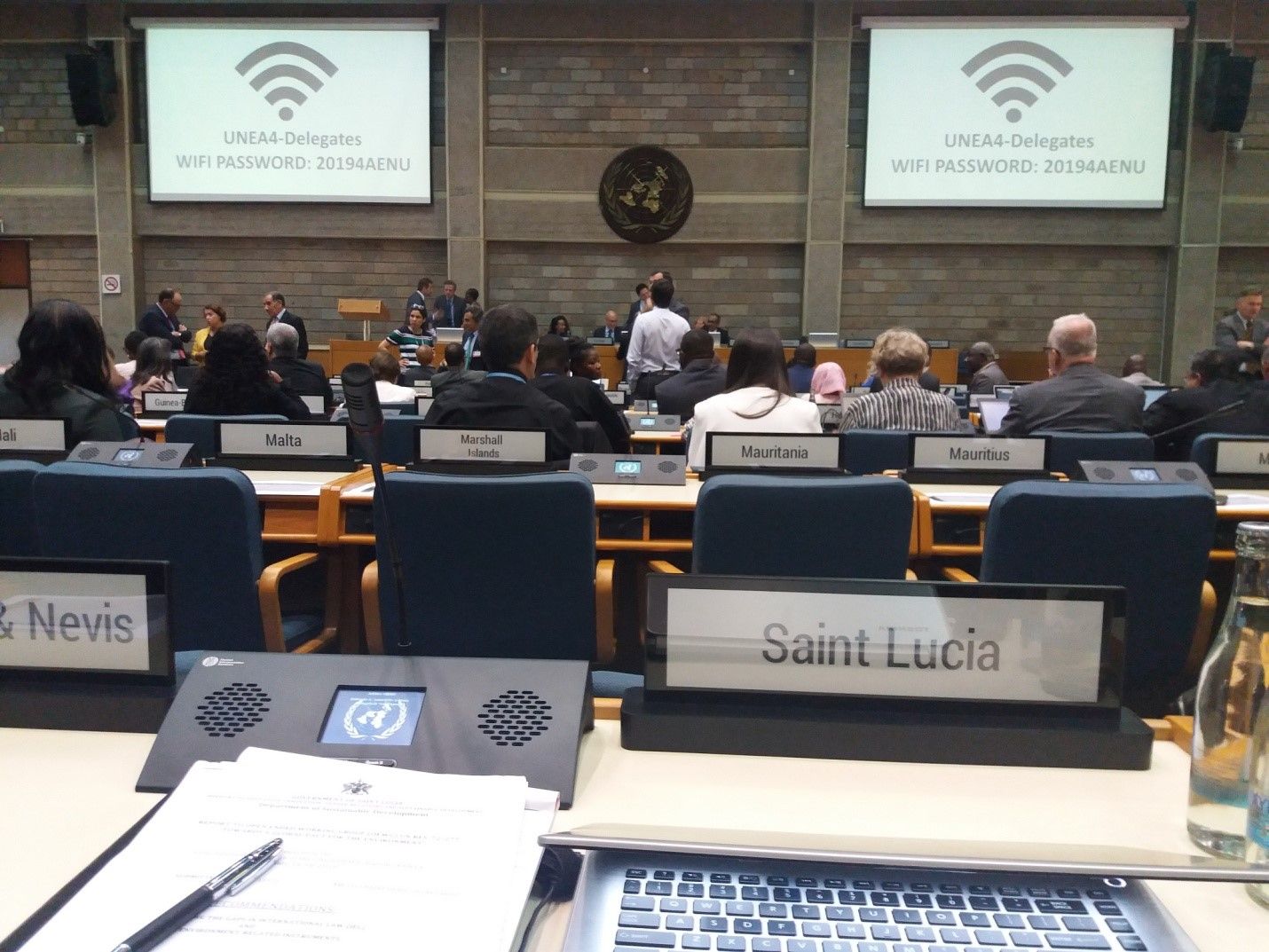Second Substantive Session to Bridge Gaps in International Environmental Law Ends in Nairobi
Media release by the Ministry of Education, Innovation, Gender Relations and Sustainable Development of the Government of Saint Lucia
Saint Lucia was once again among the high powered grouping of UN Member States, who recently concluded the Second Substantive Session of the Ad Hoc Open-Ended Working Group (OEWG) which took place in Nairobi, Kenya from March 18-20, 2019.
The OEWG formed by the United Nations General Assembly met essentially to discuss possible options to address possible gaps in International Environmental Law (IEL) and Environment-related Instruments as appropriate, and if deemed necessary, to discuss the scope, parameters and feasibility of an International Instrument, with a view to making recommendations, which may include the convening of an intergovernmental conference to adopt an international instrument.
During the three (3) day Session, delegates from the various Member States of the United Nations, Specialized Agencies, Representatives of Multilateral Environmental Agreements such as the Basel, Ramsar and Minamata Conventions, Intergovernmental Organizations, NGOs, Academia, Judiciary and Civil Society, discussed at length, recommendations to improve the status of International Environmental Law, as well as that of related Instruments such as those governing Human Rights, Trade, Peace and Security, Migration, Investment and Intellectual Property, among others.
The Session specifically focused on those options proposed by delegates and others present, which did not duplicate or undermine existing law and any ongoing efforts and processes. The objectives of those options as well as the methodology which could be used to develop them were equally explored.
This Second Substantive Session was provided with guiding questions by the Co-Chairs the Permanent Ambassador to the UN for Portugal, His Excellency Francisco Antonio Duarte Lopes and the Permanent Ambassador to the UN for Lebanon, Her Excellency Amal Mudallali.
These guiding elements served to structure and support the debate, allowing for greater understanding of the different perspectives held and proposed by the delegations. They also facilitated progress within the work of the OEWG.
Chief among the issues discussed were problems faced in coordination and mutual supportiveness as well as risks of incoherence related to the governance structure of International Environmental Law.
Challenges related to the implementation of existing rules and principles of IEL as well as the implementation of specific regulatory regimes were also highlighted.
The Minister for Education, Innovation, Gender Relations and Sustainable Development, the Honorable Dr. Gale T. C. Rigobert, continues to support and encourage Saint Lucia’s participation in such important deliberations. The island’s Report containing concrete recommendations from its unique perspective proudly took its place among that of the other global giants uploaded by the United Nations Environment Program (UNEP) at https://wedocs.unep.org/handle/20.500.11822/27610
The Island has been ably represented by the Legal Officer in the Department of Sustainable Development, Miss Kate Wilson. The OEWG is mandated by UNGA Resolution 72/277 of May 10, 2018, entitled “Towards A Global Pact for the Environment”.

